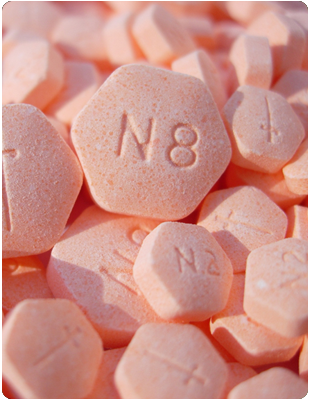Suboxone Treatment for Opiate Addiction
Suboxone is a medication that has been clinically approved for opiate addiction treatment. The medication contains a partial antagonist as well as an agonist which makes Suboxone also an addictive substance similar to other opiates. Suboxone is a mixture of buprenorphine hydrochloride and naloxone. The buprenorphine hydrochloride reduces symptoms of opiate dependence while the naloxone helps to prevent misuse of the drug by creating a time release.

Suboxone treatment is very beneficial for a person having addiction problems.
Suboxone comes in 2 mg or 8 mg tablets that are dissolved under the tongue. While this type of medication is often prescribed to assist in overcoming opiate addiction, there are inherent dangers with taking Suboxone as the medication can be physically addicting and may cause dependence. This means that even If you stop taking Suboxone, you may still get physical withdrawal symptoms similar to those associated with opiate addiction.
Approved in 2002 by the U.S. Food and Drug Administration, Suboxone is often used to manage physical dependence on a range of opiates including heroin, oxycodone, OxyContin, hydrocodone, morphine and fentanyl. The buprenorphine in Suboxone works similar to morphine by attaching to the receptors in the brain and central nervous system.
Suboxone is now widely used for the treatment of opiate addiction. While this type of treatment can be very beneficial, it’s important to discuss all treatment options with a doctor or specialist prior to starting any treatment regimen. Because Suboxone is an opiate, taking it for the treatment or management of opiate dependence means that there will ultimately be the need to wean the patient from the replacement drug. For some, replacing a drug with a drug is not always the best treatment option.
Side Effects of Suboxone
There are some side effects associated with taking Suboxone for the treatment of opiate addiction. First and foremost, in order for a patient to benefit from taking Suboxone, they must not have used opiates for a specific period of time, usually 24 hours. This means that the patient will feel the effects of opiate withdrawal for a period of time prior to taking the Suboxone. For some patients, this period of time is very difficult to go through and may result in relapse.
Breathing problems are a common concern for anyone taking Suboxone for the treatment of opiate addiction. Because Suboxone can be deadly if combined with other depressants such as benzodiazepines, alcohol, sleeping pills or antidepressants it is strongly advised that other drugs are not used while taking this medication.
The following side effects may occur while taking Suboxone for the treatment of opiate addiction:
- Cold symptoms
- Flu-like symptoms
- Headaches
- Sweating
- Sleeping problems
- Nausea
- Mood swings